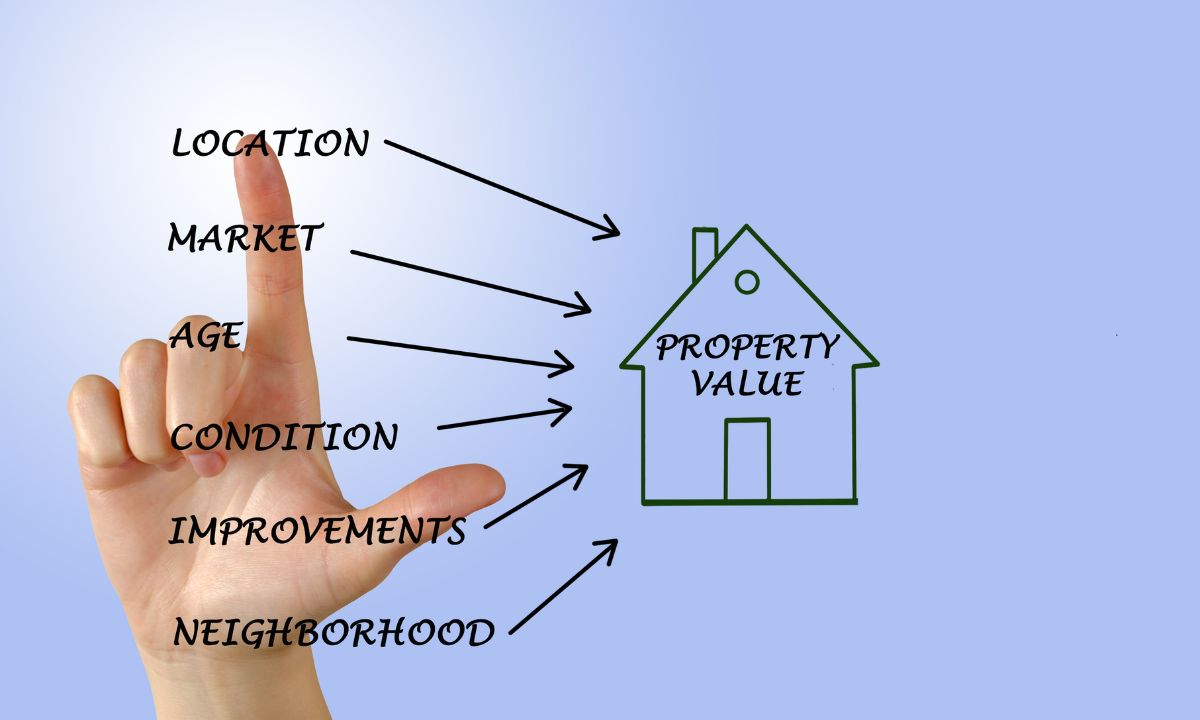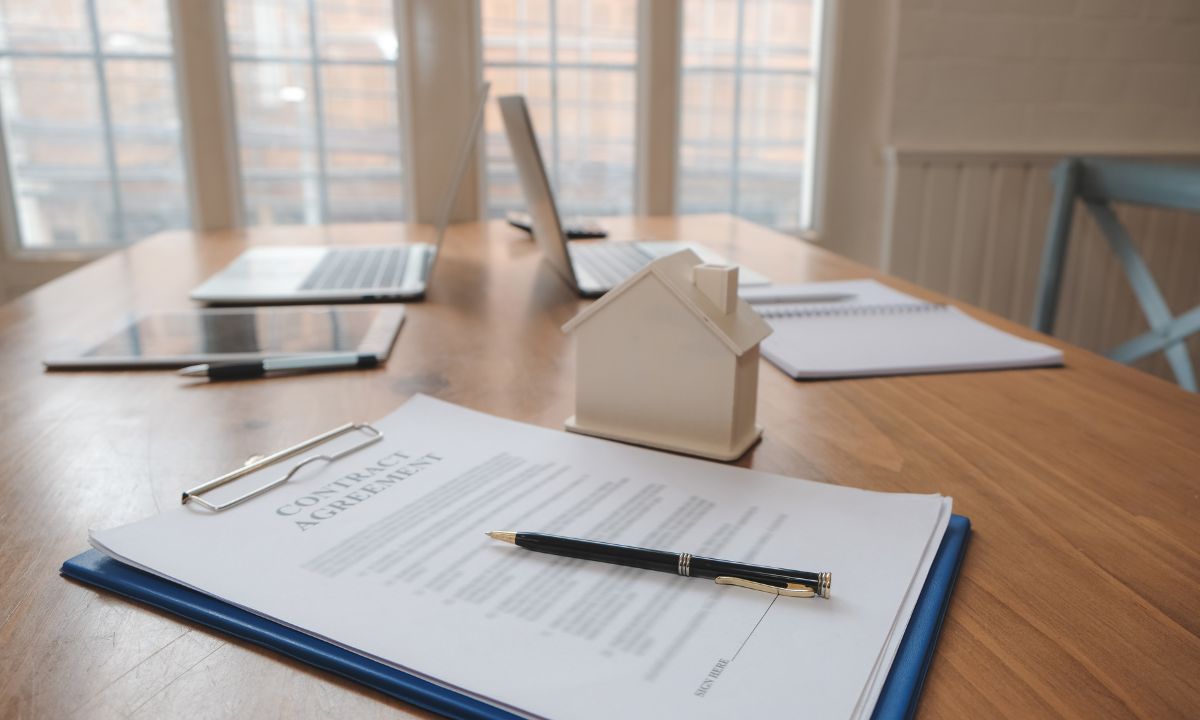 As a homeowner or potential buyer, understanding what truly influences a property’s value can help you make informed decisions. Whether you’re selling your home or planning to purchase, knowing the factors that impact property value can put you in a stronger negotiating position and help you maximize your investment.
As a homeowner or potential buyer, understanding what truly influences a property’s value can help you make informed decisions. Whether you’re selling your home or planning to purchase, knowing the factors that impact property value can put you in a stronger negotiating position and help you maximize your investment.
Here are the top six factors that play a key role in determining a home’s value:
1. Location, Location, Location
The adage still holds true—location is king. The desirability and convenience of your home’s surroundings significantly affect its value. Proximity to good schools, shopping centers, parks, public transportation, and low-crime areas typically increase a home’s worth. For buyers, this means a prime location can lead to increased appreciation over time; for sellers, it can justify a higher asking price.
2. Square Footage and Usable Space
Size matters, but usable space matters more. Buyers consider the square footage of a home, but they’re even more concerned with the layout and utility of that space. For example, a 2,500-square-foot home with more open, functional spaces is often valued higher than a similar-sized home with poor room layouts. Ensuring every square foot serves a purpose makes your home more marketable.
3. Age and Condition of the Home
A home’s age and condition play a huge role in determining its market value. Modern systems, like HVAC, plumbing, and electrical, improve home efficiency and can reduce maintenance costs for buyers. Meanwhile, well-maintained older homes that retain character can be highly desirable too. Sellers, keep your property updated and repaired; it can boost your home’s worth while reducing buyer concerns.
4. Comparable Properties (Comps) in the Neighborhood
Real estate professionals and appraisers rely heavily on comps—recent sales of similar properties in your area—to determine your home’s market value. Comps reflect local market trends and establish a benchmark for pricing your home. Buyers, understanding comps will help you gauge the true worth of a home before making an offer. Sellers, take note of these metrics to competitively price your property.
5. Upgrades and Improvements
Not all home improvements guarantee a high return on investment, but many can positively impact your home’s value. Key renovations such as modern kitchens, updated bathrooms, and energy-efficient windows or solar panels often appeal to buyers. High-quality finishes can also influence a buyer’s perception of your home’s worth. Sellers should be strategic about upgrades, while buyers can identify which features might add future value.
6. Market Conditions
The broader real estate market can greatly affect your home’s value. Interest rates, supply and demand dynamics, and economic conditions all play a part. A seller’s market with low inventory typically drives up prices, while a buyer’s market with high inventory may lead to more competitive pricing. Paying attention to market trends allows both buyers and sellers to better strategize.
Real estate transactions involve many moving parts, but being knowledgeable about what drives a home’s value can empower you to make sound decisions. Location, size, condition, comps, upgrades, and market conditions all contribute to how a home is perceived in the market.
 When it comes to homeownership, one of the most important aspects of the process is ensuring you have the proper legal documentation that proves your ownership. This documentation usually comes in the form of a title or a deed. These documents not only provide proof of ownership but also serve as a way to protect your rights to the property. Whether you’re buying your first home or adding to your real estate portfolio, understanding the difference between titles and deeds is essential to securing your investment.
When it comes to homeownership, one of the most important aspects of the process is ensuring you have the proper legal documentation that proves your ownership. This documentation usually comes in the form of a title or a deed. These documents not only provide proof of ownership but also serve as a way to protect your rights to the property. Whether you’re buying your first home or adding to your real estate portfolio, understanding the difference between titles and deeds is essential to securing your investment. As the leaves turn and the air gets crisp, many of us start thinking about renovations that can make our homes more appealing—especially with Halloween right around the corner! Whether you’re preparing for spooky festivities or planning a future sale, the right renovations can turn your home into a valuable gem. Let’s dive into some hauntingly good renovations that can raise your home’s value without leaving you in a fright!
As the leaves turn and the air gets crisp, many of us start thinking about renovations that can make our homes more appealing—especially with Halloween right around the corner! Whether you’re preparing for spooky festivities or planning a future sale, the right renovations can turn your home into a valuable gem. Let’s dive into some hauntingly good renovations that can raise your home’s value without leaving you in a fright! When it comes to selling your home, one of the biggest hurdles many people face is clutter. After years of living in the same space, it’s easy to accumulate items that hold sentimental value, making it challenging to let go. However, clutter can significantly impact how potential buyers perceive your home, even if you don’t realize it. Here’s how to tackle clutter in various areas of your home to create a welcoming environment that attracts buyers.
When it comes to selling your home, one of the biggest hurdles many people face is clutter. After years of living in the same space, it’s easy to accumulate items that hold sentimental value, making it challenging to let go. However, clutter can significantly impact how potential buyers perceive your home, even if you don’t realize it. Here’s how to tackle clutter in various areas of your home to create a welcoming environment that attracts buyers. Moving to a new home can be an exciting adventure, especially for families. However, for children, it can also bring a mix of emotions. As a parent, you play a crucial role in helping your kids transition smoothly. Here are some strategies to prepare your children for the big move while also navigating the process effectively.
Moving to a new home can be an exciting adventure, especially for families. However, for children, it can also bring a mix of emotions. As a parent, you play a crucial role in helping your kids transition smoothly. Here are some strategies to prepare your children for the big move while also navigating the process effectively.